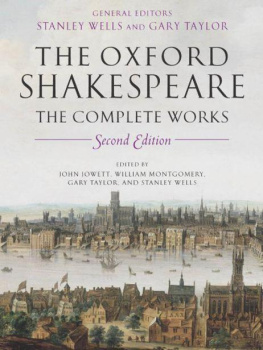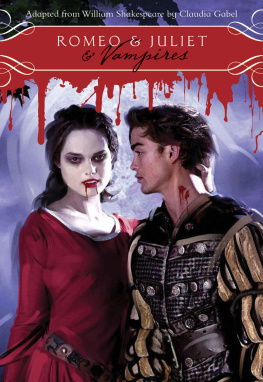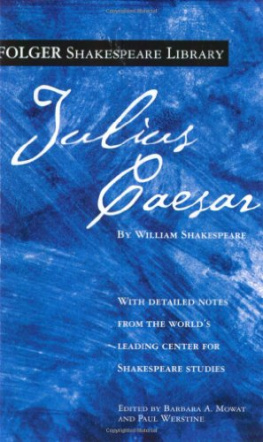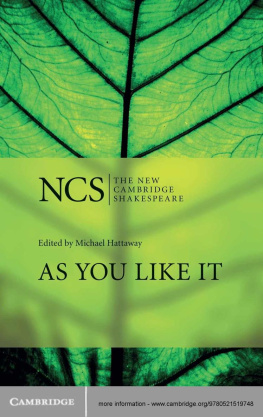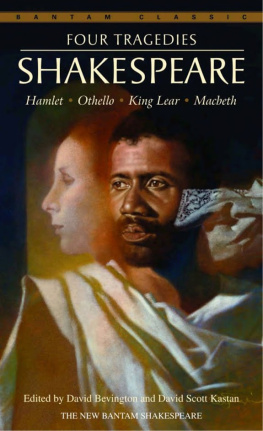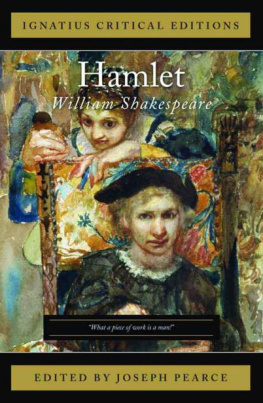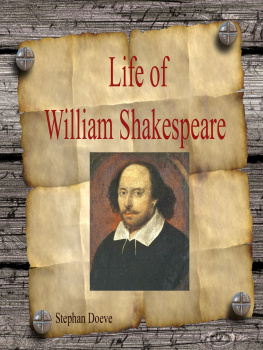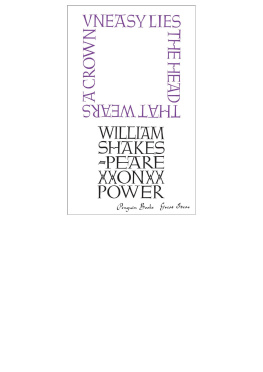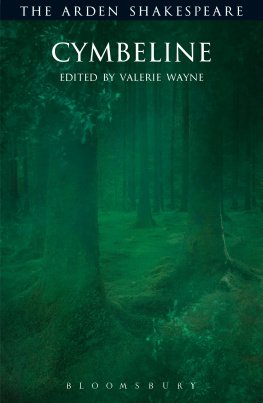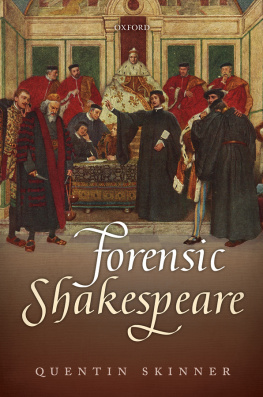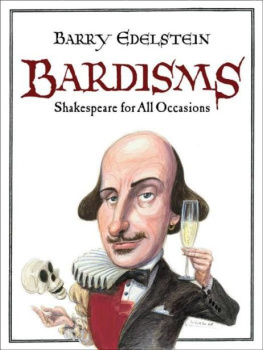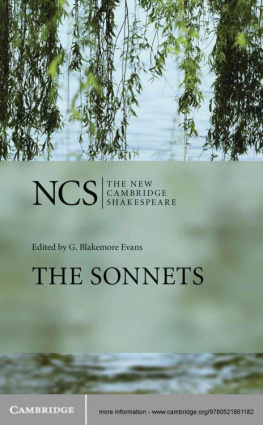William Shakespeare - Poetry for Kids: William Shakespeare
Here you can read online William Shakespeare - Poetry for Kids: William Shakespeare full text of the book (entire story) in english for free. Download pdf and epub, get meaning, cover and reviews about this ebook. year: 2018, publisher: MoonDance Press, genre: Science. Description of the work, (preface) as well as reviews are available. Best literature library LitArk.com created for fans of good reading and offers a wide selection of genres:
Romance novel
Science fiction
Adventure
Detective
Science
History
Home and family
Prose
Art
Politics
Computer
Non-fiction
Religion
Business
Children
Humor
Choose a favorite category and find really read worthwhile books. Enjoy immersion in the world of imagination, feel the emotions of the characters or learn something new for yourself, make an fascinating discovery.

- Book:Poetry for Kids: William Shakespeare
- Author:
- Publisher:MoonDance Press
- Genre:
- Year:2018
- Rating:3 / 5
- Favourites:Add to favourites
- Your mark:
- 60
- 1
- 2
- 3
- 4
- 5
Poetry for Kids: William Shakespeare: summary, description and annotation
We offer to read an annotation, description, summary or preface (depends on what the author of the book "Poetry for Kids: William Shakespeare" wrote himself). If you haven't found the necessary information about the book — write in the comments, we will try to find it.
William Shakespeare: author's other books
Who wrote Poetry for Kids: William Shakespeare? Find out the surname, the name of the author of the book and a list of all author's works by series.
Poetry for Kids: William Shakespeare — read online for free the complete book (whole text) full work
Below is the text of the book, divided by pages. System saving the place of the last page read, allows you to conveniently read the book "Poetry for Kids: William Shakespeare" online for free, without having to search again every time where you left off. Put a bookmark, and you can go to the page where you finished reading at any time.
Font size:
Interval:
Bookmark:
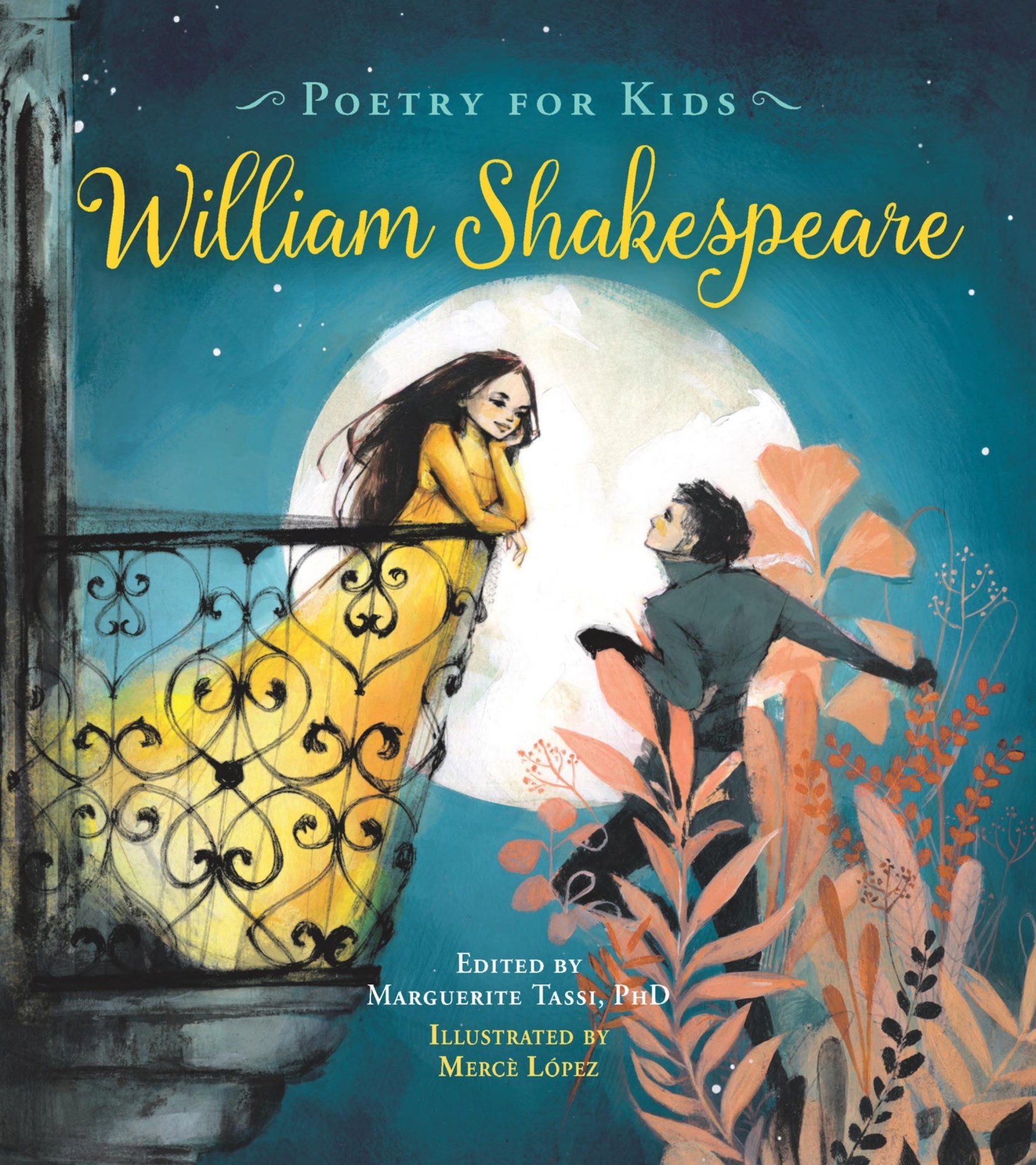

At age eighteen, William married a local girl, Anne Hathaway. They had three children: Susanna and twins named Judith and Hamnet. Sadly, Hamnet lived only to the age of eleven. By all appearances, Williams life was relatively quiet until his mid-twenties when he left Stratford to try his fortune in the big city. In the late 1580s, the London-area theatres were on the rise, teeming with excitement and life. William made his way to London to work in this vibrant artistic world, where a new show played every afternoon in gorgeously painted wooden playhouses.
William got his start as an actor, but it did not take long for him to realize that his greatest talent lay in playwriting. He joined an acting company called the Lord Chamberlains Men, later known as the Kings Men (when James I became their patron). William became the companys resident dramatist at the Theatre, the first professionally built playhouse in London. The Lord Chamberlains Men were a travelling company as well, which meant that Williams plays were performed at inns, royal courts, universities, and in other English towns. William first won fame with his history plays in the early 1590s, which brought the thrilling stories of Englands kings to the stage. He then gained further popularity with comedies like A Midsummer Nights Dream and tragedies, such as Romeo and Juliet and Hamlet.
His soaring poetry, lifelike characters, and dramatic innovations made William the most popular playwright of his time. He also earned a reputation as a poet, writing a number of long poems and 154 sonnets. William is best known for his association with the Globe Theatre. When the Lord Chamberlains Men lost their lease to the land under the Theatre, they took a risk that changed the course of history. In the dead of night, the men met at the Theatre, and despite the wintry cold, they worked to dismantle the entire building. Then they carried the timber across the frozen River Thames to another site, where the playhouse was rebuilt and named the Globe.
Although it was demolished eventually in 1644, a new Globe playhouse was built many years later and opened in 1997. William died a wealthy man in Stratford in April 1616 at the age of fifty-two. Seven years later, his friends from the Kings Men, John Heminge and Henry Condell, did something that would change literary and theatrical history profoundly. They collected all of Williams handwritten scripts and brought them to a printer. In 1623, the collected plays of Shakespeare, called the First Folio, appeared in print. Among the thirty-six plays were eighteen that would have been lost had they not appeared in the Folio, including some of Williams best loved works: Macbeth, Julius Caesar, As You Like It, and The Tempest.
As his friend and fellow dramatist Ben Jonson wrote, William was not of an age, but for all time.

And then the justice, In fair round belly with good capon lined, With eyes severe and beard of formal cut, Full of wise saws and modern instances; And so he plays his part. The sixth age shifts Into the lean and slipperd pantaloon, With spectacles on nose and pouch on side, His youthful hose, well saved, a world too wide For his shrunk shank; and his big manly voice, Turning again toward childish treble, pipes And whistles in his sound. Last scene of all, That ends this strange eventful history, Is second childishness and mere oblivion, Sans teeth, sans eyes, sans taste, sans everything. MewlingwhimperingLike furnacelike a furnace emitting smokeBearded like the pardhaving whiskers like a leopardJealous in honourcarefully guarding his honourBubble reputationfleeting gloryCaponcock fattened for eating; often presented to judges as a bribeSawssayingsModern instancescommonplace illustrations or proofs against universal beliefsPantaloonridiculous old merchant from Italian comedyHoseleggingsA worldfarShanklegMere oblivioncomplete forgetfulnessSanswithout


Font size:
Interval:
Bookmark:
Similar books «Poetry for Kids: William Shakespeare»
Look at similar books to Poetry for Kids: William Shakespeare. We have selected literature similar in name and meaning in the hope of providing readers with more options to find new, interesting, not yet read works.
Discussion, reviews of the book Poetry for Kids: William Shakespeare and just readers' own opinions. Leave your comments, write what you think about the work, its meaning or the main characters. Specify what exactly you liked and what you didn't like, and why you think so.

